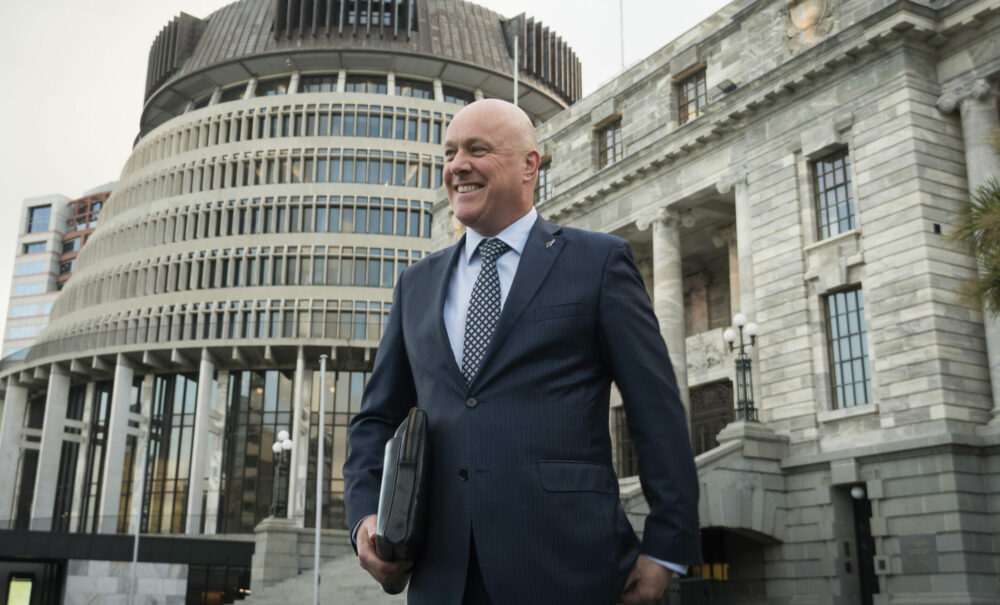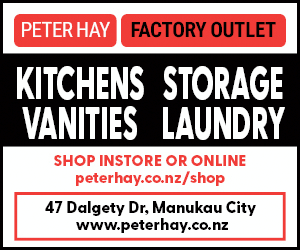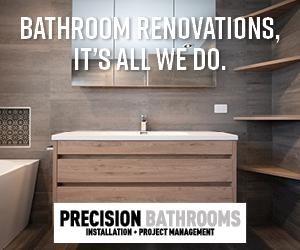
The Government should give struggling Kiwis a break this Budget and deliver tax relief from the cost of living crisis, says Opposition Leader Christopher Luxon.
“Inflation is at a 30-year high, with the cost of everyday basics like food, petrol and housing all through the roof. The average Kiwi family is worse off than they were 12 months ago and the Government needs to act.
“One of the hidden costs of inflation is bracket creep, where earners are paying more tax solely because of inflation. Someone on the average wage now has a marginal tax rate of 33 per cent. That’s not right.
“At the upcoming Budget the Finance Minister should adjust the bottom three income tax thresholds to account for the inflation we’ve seen in the last four years under Labour.
“A family with two adults on the average wage would benefit by over $1,700 a year. Someone earning $55,000 a year would pay $800 less tax. Everyone earning over $78,100 would be better off by over $1,000 a year. In addition, the couple rate for NZ Super would go up by $546 per year on top of the scheduled increase this April.
“Anyone earning over $14,000 or receiving NZ Super would be better off as a result of these changes. No one will get rich, but they will make things a little easier for Kiwis struggling with the rapidly rising cost of living.
“These changes would not put further pressure on inflation or require spending cuts in areas like health and education. They would be met from Grant Robertson’s record $6 billion new spending allowance, and so would simply require Labour to be slightly less profligate with its new spending in Budget 2022.
“Even after accounting for the $1.7 billion cost of these tax cuts, the remaining $4.3 billion would still be the biggest allowance for new spending initiatives ever.
“It’s time for the Government to stop its massive tax grab. They need to take action and deliver tax relief to hard working Kiwis struggling under a cost of living crisis.”
Christopher Luxon’s full State of the Nation address given today
Kia ora koutou katoa, Da jia hao, Namaste, Sat Sri Akal, Assalamu alaikum, Talofa lava, Malo e lelei, and good morning everyone. Thank you so much for joining me here today.
First, I want to acknowledge that everyone has been shaken by the unprovoked and senseless attack on Ukraine. It is heart-breaking to see Ukrainians who just over a week ago were like us going about their everyday lives – dropping the kids to school, going to work, shopping at the supermarket – now having to fight for their country. Their bravery has been inspiring to us all.
Our thoughts are with them, and especially so with their friends and family here in New Zealand who are right now fearing for the safety of their loved ones.
It is so good to be back home in Botany today. I’m proud to represent this community with so much diversity and that adds such richness to New Zealand.
Botany people have all worked incredibly hard to get to where they are. It’s that desire to get ahead, for ourselves, our families and our community, that unites us regardless of our age, ethnicity, language and faith, here in Botany and across the whole of New Zealand too.
I’m also proud to come to politics with a different background from most politicians. So, before we look ahead, I want to look a little to the past and share what has brought me to this point, because it influences how I believe we should shape our country’s future.
My parents both left school early and were fantastic role models.
Dad was a salesman, and when I was young we moved between Auckland and Christchurch for his work. From him I learned to have ambition and never settle for mediocrity, to work hard, to stay positive and to never let your circumstances define you.
Mum taught me about people, relationships and from her I got my sense of humour. When I went off to uni, Mum joined me to study social work. She established an Alzheimer’s and dementia carers’ support organisation and has gone on to become a respected psychotherapist and counsellor. Mum has helped thousands of people deal with difficulties and complexity in their lives. From her I learnt that life can be complicated, messy and hard – and that we all have a responsibility to support those that are doing it tough.
I’m proud of what I achieved before entering politics.
Yes, in business. But my greatest achievement will always be convincing my wife Amanda that I was the person she should spend the rest of her life with, and then having two amazing children together. Children who we’ve had the privilege of watching grow into smart, confident young adults – and who aren’t afraid to give their mum and dad some advice these days.
Being a husband and a father will forever be the role that defines me. Nothing else comes close.
But I’ve been fortunate to have some other amazing roles too.
My first job was at McDonalds, where I had the privilege of running the drive-thru. And I’m still partial to a burger and fries when Amanda’s not around – it’s fair to say she’s a bit more into healthy lifestyles than I am.
After university I joined Unilever.
Living and working across the globe for 16 years I saw the good and bad of different political systems.
Recently, I watched as several Labour Party MPs enthusiastically declared that they were proud socialists.
Whatever you call it, Labour has time and again shown us that it thinks it alone knows what is best for Kiwis and their communities. They don’t trust us to make decisions for ourselves and our families – they insist more and more things should be dictated by politicians and bureaucrats in Wellington.
I simply do not agree.
Working for Unilever it was important to understand the lives of the people who were buying our products.
So, in most cities that I visited, the first thing I did was spend time with local people in their homes, understanding their lives before I met our management teams who often lived a different reality.
I remember sitting in a modest Moscow flat with a couple in their late 40s on a dark and snowy afternoon. It couldn’t have been clearer that socialism – in terms of Government control of everyday life and lack of rewards for hard work – had abjectly failed and actually created misery.
After Unilever I returned to New Zealand and had the privilege of leading our most iconic company – Air New Zealand – and its team of 12,000 staff.
These experiences shaped my belief that business has a responsibility to engage on the economic, social and environmental issues that will ultimately strengthen our society.
A successful business means more jobs and higher wages – more opportunities for Kiwis to get ahead.
Even more than that, businesses are hubs in our communities. And they have a responsibility to help make New Zealand a better place.
At Air New Zealand I ensured the company embraced sustainability – partnering with the Department of Conservation, and being a foundation member of the Climate Leaders Coalition to support net carbon zero by 2050.
And I was able to respond to our country’s shameful record of family violence by making it a workplace issue – implementing three weeks’ paid leave for victims. I was able to ensure that women earned the same as men doing the same job, and that they were better represented in our senior ranks.
We did all that while delivering strong financial results which meant the number of employees earning over $100,000 grew from 2,600 to 4,300.
I entered politics because I care deeply about people.
I joined National because I want New Zealand to realise its maximum potential, and to help build a society where every Kiwi can flourish and get ahead.
Where communities aren’t dictated to by politicians in Wellington.
Where if you work hard you can afford to buy a house.
Where we support those who are doing it tough.
Where our public health and education systems are first class for all Kiwis.
Where we protect our natural environment and play our part on climate change.
That’s my vision for New Zealand – a society of opportunity – where if you put in an honest day’s work, you and your family can get ahead.
And it’s only possible if we have a strong economy to back it up.
Unfortunately, right now we have a Government taking us backwards.
We have a Government that believes it alone has the answers and yet has demonstrated time and again a complete inability to deliver anything at all.
Just look at Three Waters – a deeply unpopular change being rammed down the throats of communities that don’t want it.
In too many other areas the Government thinks it’s sufficient to just talk about problems rather than fix them. It is all spin and no delivery.
We have a Government that is deeply suspicious of business, and yet leads a public sector that can’t build houses, can’t deliver better health care, and won’t do what’s needed to improve our education system, all while piling on debt for future generations to pay off.
It’s no wonder Kiwis I talk to up and down the country are frustrated.
They’re frustrated at working ever harder but not getting ahead, at being fed line after line of spin rather than real solutions, at being faced with a sea of bureaucrats and politicians who don’t listen and who don’t represent them.
It’s that frustration that ultimately drives social division.
Our young people are being locked out of the housing market, while rent is up $140 a week under Labour.
They are seeing climate change policies which are all about looking like you’re doing something, but not actually making a difference.
They are seeing falling real wages.
They are seeing the performance of our education system go backwards.
And they are seeing the Government’s approach to hardship actually increase child poverty.
These aren’t the signs of a nation at its best.
They’re signs of Labour’s low expectations and a lack of faith in people’s ability to succeed.
We’re missing trust.
Trust in communities to find solutions.
Trust in individuals to succeed and to make their own choices.
Trust in businesses to look after their workers and to create value that grows the pie for us all.
Trust in people to spend more of their own hard-earned money.
And as a result we’re seeing a lack of trust in our Government to do anything other than constrain us.
I want to rebuild that trust.
I get things done. It is what I built my career on, and it is what I bring to politics.
So my commitment to you is that you can trust me to do what I say I will do, and you can trust National under me to find solutions to our most challenging problems, and to implement them in a way which takes our country forward – together.
I’m a proud defender of free enterprise because of how much good the system has done creating opportunity and reducing poverty.
It was that system that attracted my ancestor, Thomas Leamy, a poor, uneducated Irishman to come to the West Coast. He was here for opportunity, to get ahead with hard work and merit.
Today, immigrants still come here to New Zealand because they want to be judged by what they can do, freed from being held down because of who they are.
Everyone should have access to that upward mobility just as Thomas Leamy experienced.
But if we’re really honest, I don’t think we’re living up to the deal in New Zealand that no matter where you start out, if you work hard you can get ahead.
The ladder of opportunity seems to be losing its lowest rungs. And that’s not right.
Most New Zealanders I’ve met share a pretty sensible view of how society should work. They want to know that if they work hard, they can get ahead.
But they also want to know that if they or someone they love – or someone they’ve never met before – falls on hard times, that society will be there to help pick them back up.
Labour’s approach is to spend billions on welfare payments that only succeed in making poverty marginally less painful. They’re reinforcing learned helplessness, not supporting Kiwis to become self-sufficient.
It is the subtle prejudice of low expectations.
It’s why the number of people stuck on the Jobseeker benefit for longer than a year has grown by 50,000 under Labour. In fact the number of people on a Jobseeker long-term is now the equivalent of everyone – both adults and children – from Napier and Nelson combined.
This is appalling at a time when unemployment is so low. If this Government can’t help people off welfare and into work now, then when on earth can they do it?
It’s not caring or kind. It’s crippling.
National knows people can do more for themselves – if they are backed, encouraged, and supported on a path to independence.
We need to replace those rungs on the ladder of social mobility.
In seeing Mum’s social work, I learnt how challenging life can be. And the role that we all need to play to support people when they are struggling. A safety net is vital.
Welfare’s ultimate purpose cannot be to make poverty a slightly less miserable experience. Our goal must be to give everyone the opportunity to lead lives of dignity, independence and self-reliance, and above all, work.
A Government that truly cares about people must make powerful and targeted interventions on behalf of those with the most complex and challenged lives. With the right resources at the right time in the right place, the State can help people make positive and sustained changes that enable them to rise up and realise their potential. That takes more than just writing a bigger cheque. It takes a good Government.
Being prepared to invest in the right places to secure better long-term results for the most vulnerable New Zealanders, and save taxpayers money in the long run, is what Bill English called “social investment”.
This will be back under National.
But instead of improving lives, Labour’s economic mismanagement is actively making things worse for everyone.
Their only economic tool is to spend more money, with Government expenditure up a staggering 68 per cent since the 2017 election, while the national debt has doubled.
They’re addicted to spending, but it isn’t delivering results. Far too much is being wasted.
Almost a billion dollars has been allocated for the Three Waters asset grab, $500 million to restructure the entire health care system in the middle of a pandemic, at least $15 billion going towards an underground tram vanity project – yes that’s right, $15 billion.
All this poor quality, unfocussed spending is having serious consequences for the economy.
The facts are stark – we have a cost of living crisis in New Zealand.
Inflation is at a three decade high.
With prices rising twice as fast as wages, Kiwi families are worse off than they were 12 months ago.
Food price rises are the highest in a decade, petrol has hit more than $3 a litre, and rents are through the roof.
And if you want to buy your first home, forget about it. The average house price is up almost $400,000 under Labour. Rising interest rates mean interest costs on a $600,000 mortgage are up $7,200 in the last 12 months, and they’re only going up from here.
Increasing spending to support the economy made sense back in 2020.
Times have changed, but Labour’s only solution is to spend up large. Instead of pulling back on the fiscal stimulus, as the OECD has called for urgently, the Government has inexplicably decided to turn the fiscal firehose up to full pressure.
Grant Robertson has given himself a $6 billion allowance for new spending at this year’s Budget. This is the largest budget spend-up New Zealand has ever seen.
Far from trying to make the load lighter for Kiwis, Labour’s approach has been to tax, tax, tax.
The last four years have been a massive tax grab.
There’s the Regional Fuel Tax – extracting hundreds of millions of dollars more from Aucklanders than is actually being spent to fix Auckland’s transport challenges.
There’s the proposed Light Rail Tax – on Aucklanders privileged enough to live near the underground tram.
There’s the 10 year bright line test extension – a capital gains tax by stealth.
There’s the removal of interest deductibility on rental properties – a tax on Kiwis who’ve worked hard and put their life savings into a rental.
There’s the new 39 per cent top income tax rate, which is a boon for tax lawyers and accountants, but betrays this Government’s attitude to ambition and will make it harder to attract top talent to our shores.
And perhaps worst of all there’s the latest jobs tax proposal, which would see everyone forced to pay for a scheme that will incentivise those who lose their job not to re-enter the workforce for more than half a year.
We should be encouraging work – not taxing it more and paying people to take six months off.
It’s classic Labour – spend, spend, spend, and then they tax you to pay for it.
Now is not the time to be adding costs on individuals and businesses. We should be letting people keep their hard earned money, not forcing them to hand over more and more to Grant Robertson to spend.
So here’s my commitment to you. When I become PM, I’ll reverse Labour’s tax grab.
National will repeal each of these tax increases implemented by Labour.
One of the other consequences of skyrocketing inflation is that, even as families can afford less and less, their nominal income increases and so income tax goes up.
Labour is using inflation as another tax grab by stealth.
We’ve got the perverse situation where someone on the average wage now has a marginal tax rate of 33 percent. And someone on the minimum wage only has to work a 44 hour week to face a tax rate of 30 cents on the dollar.
That’s ridiculous.
So I’m calling on the Prime Minister and Grant Robertson to give Kiwis a break, and return the extra tax they are grabbing through inflation.
At the upcoming Budget in May, the Finance Minister should use a portion of his $6 billion to adjust income tax thresholds to account for the inflation we’ve seen under Labour.
This would see each of the first three tax thresholds immediately increase by around eleven and a half percent.
This is a policy Simon Bridges has been very passionate about for some time – and I want to particularly acknowledge his leadership on this issue. It was a good idea then, but it’s an even better idea now because of skyrocketing inflation and the massive operating allowance Grant Robertson has given himself for new spending at the upcoming Budget.
Simon has driven a lot of this work, but unfortunately isn’t able to be here today as he’s isolating with his family.
The change would mean the 10.5 per cent tax rate would apply to the first $15,600 of income, not $14,000 as it is currently.
The 17.5 per cent rate would extend to $53,500 rather than $48,000.
And rather than the 33 per cent tax rate kicking in at $70,000 – less than the average wage – it would increase to $78,100.
Someone on $55,000 a year would get $800 in tax relief a year.
Someone on the average wage would be better off by $870 a year.
And anyone earning $78,100 or above would be better off by over $1,000 a year.
We aren’t calling on Labour to change the 39 per cent threshold in the upcoming Budget because it only came into effect recently.
Because Super is indexed to the average after-tax wage, over-65s would also benefit, with the couple rate increasing by around $540 a year.
These changes aren’t going to make anyone rich.
But that’s not the point – they will make things a little easier for Kiwis who are struggling to get ahead under the weight of the cost of living crisis.
Indexing tax thresholds to 2017 would cost just under $1.7 billion – which is relatively modest when you consider Kiwis will be paying an extra $12.5 billion in income tax this year compared to when Labour took office.
These changes would not put further pressure on inflation or require spending cuts in areas like health and education. They wouldn’t mean austerity or a Budget with no new spending.
They would be met from Grant Robertson’s record $6 billion new spending allowance, and so would simply require Labour to be slightly less profligate with its new spending in Budget 2022.
Even after accounting for the $1.7 billion cost of these tax cuts, the remaining $4.3 billion would still be the biggest allowance for new spending initiatives ever. Or Robertson could even use some of it to pay down debt – but that’s not really in Labour’s DNA.
National would do things differently.
I want New Zealand to be world-leading. A place where good enough isn’t good enough for us.
Our ability to become more prosperous, to enjoy a higher quality of life, depends on the size of our economic engine. And right now, that engine needs serious upgrading.
For too long, Kiwis have been of the mindset that the only way to get ahead is to work longer hours. The average Kiwi works 370 hours a year more than someone in the UK – the equivalent of more than nine extra weeks – but still our incomes lag.
We’re suffering from a productivity disease – the average Kiwi works for an hour to earn what an Australian earns in 45 minutes.
I’m not going to stand here and tell you there is one big bang solution to lifting incomes and helping Kiwis get ahead – it will take lots of small changes across the economy.
But we do need one major change – mindset.
We need to move away from Labour’s view that the politicians control the economy, and realise that it is Kiwis and businesses all over New Zealand that hold the keys to our success.
It’s the mums and dads who get up early to get the kids ready for school and then head to work to provide for their family.
It’s the tens of thousands of small business owners who risk everything to have a go, to create opportunities for their communities.
It’s our entrepreneurs and innovators like Rocket Lab and Xero, which are building whole industries here in New Zealand.
It’s the kiwifruit pickers and the Uber drivers, the nurses and the teachers, the builders and the farmers, the business owners and their employees.
It is the hard work and innovation of our communities up and down the country that will drive us forward.
We need to back small businesses up and down the country – because National knows that it is business, not government, that helps Kiwis get ahead by lifting wages and hiring more people.
In closing, let me say the last two years have been unprecedented, with the shadow of Covid hanging over everything we do. But we need to be careful that we don’t focus so much on Covid that we neglect the society we are trying to build, together.
There’s a big difference between activity and achievement, between talk and action, spin and results. That’s why I’ve come to political life – to get things done.
New Zealanders will have a stark choice at the election next year.
I believe that practical, modern centre-right political principles can help us navigate the social, environmental and economic challenges we face as a country.
That’s why I’m proud to lead National as we work relentlessly to build a society of opportunity for all New Zealanders.
Thank you.









